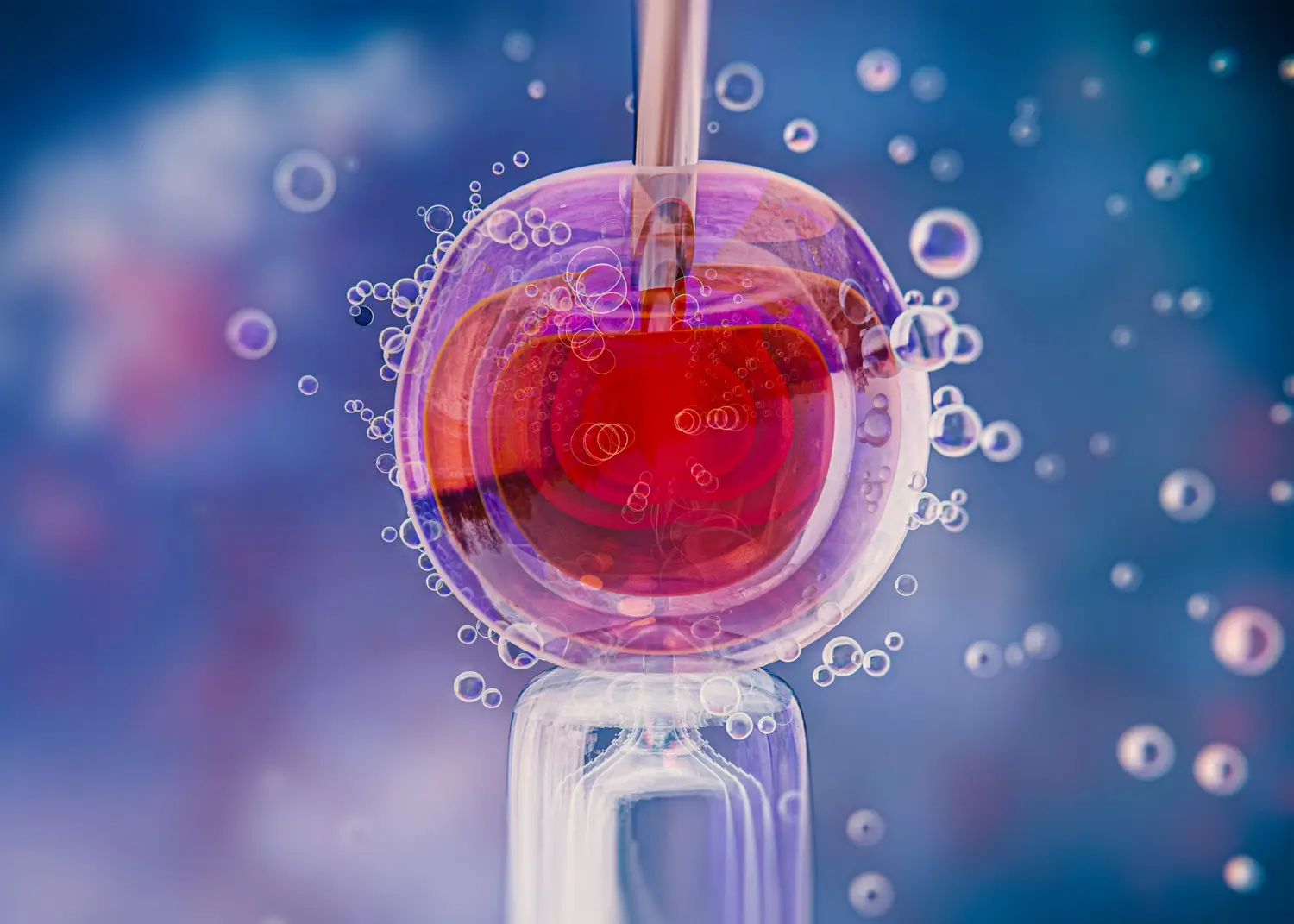For infertile couples and individuals, new paths to parenthood have now been opened up through advances in reproductive medicine. Frozen Embryo Transfer (FET) is likely to be one of the most widely used and effective modalities available today. In areas like Canada, in which fertility treatment has become more available and more powerful, frozen embryo transfers with donor embryos are now becoming more common. Whether you are thinking about having frozen donor embryos in Canada or finding a frozen donor embryo bank, having the basics regarding FET is the beginning of making the right decision.
What Is Frozen Embryo Transfer (FET)?
Understanding the Process
Frozen Embryo Transfer (FET) is an assisted reproductive treatment (ART) in which a frozen embryo is thawed and inserted into a woman’s uterus. The embryos may be built up from the couple’s egg and sperm, or from donor eggs, donor sperm, or frozen donor embryos.
FET is used primarily in the following situations:
- As part of an IVF cycle, when excess embryos were cryopreserved
- To postpone embryo transfer for health or personal reasons
- When transferring donor embryos from a bank of frozen donor embryos
Why Choose Frozen Donor Embryos?
Advantages of Donor Embryos
Using frozen donor embryos in Canada is increasingly becoming a solution for:
- Individuals who are not able to get pregnant or conceive healthy eggs or sperm
- Same-sex couples who want to be parents
- Genetically concerned individuals who would like to avoid passing on inherited illnesses
Donor embryos present a unique opportunity in that they are already available and can be used by planting them. What that means is that potential parents can skip the fertilization process, conserving time and money that would otherwise be devoted to creating embryos from scratch.
What Is a Bank of Frozen Donor Embryos?
A frozen donor embryo bank is an organization that keeps and makes available for use cryopreserved embryos donated by individuals or couples who have finished their family construction. Such banks:
- Screen and profile donors intensely
- Provide a wide ethnic and medical backgrounds
- Implement appropriate safety standards in storing embryos
Canadian access to donor embryo banks is controlled to provide ethical and safe utilization of all reproductive materials.
The FET Procedure: Step-by-Step
1. Medical Evaluation and Consultation
Before a FET, you will be evaluated thoroughly to get your uterus ready for the implantation of the embryo. These are:
- Blood tests
- Ultrasound
- Hormone tests
2. Endometrial Preparation
The endometrium should be hormonally stimulated to enhance the possibility of implantation. This is typically done by:
- Estrogen and progesterone therapy
- Natural cycle monitoring for patients who do not receive hormone therapy
3. Embryo Thawing and Transfer
Once your endometrium preparation:
- The frozen donor embryo, which you have chosen, is thawed with care
- A fertility specialist inserts it into the womb through a fine catheter
It is likely to be painless and anaesthetic-free.
4. The Two-Week Wait
You will wait for approximately 10–14 days after the implantation before doing a pregnancy test. This is the nervous, expectant phase.
Success Rates of Frozen Embryo Transfer
FET has shown high success rates in the past decade because of advances in freezing technology (vitrification) and more sophisticated hormonal protocols. With high-quality frozen donor embryos, success can range from 40–60% per cycle based on age, uterine status, and embryo quality.
Some key points:
- Donor embryo success rates are greater than a patient’s embryos, particularly when the donor is young and healthy.
- That success is augmented by having frozen donor embryos from a well-established frozen donor embryo bank because of high standards of quality.

Emotional and Legal Considerations
Emotional Readiness
Donor embryo use is a highly personal decision. Ask yourself:
- The emotional implications of using embryos that are genetically not related to one or both parents
- How are you going to tell your child
It is not unusual for most fertility clinics to offer counseling to help individuals and couples manage these feelings.
Legal Aspects in Canada
In Canada, there are stringent laws surrounding embryo donation:
- Embryo donation must be altruistic (no one can pay)
- The donor and recipient must provide consent
- Donors’ identities may or may not be revealed, depending on the agreement
Working with licensed professionals and clinics ensures you’re protected legally and ethically.
Cost of Frozen Donor Embryo Transfers in Canada
FET using frozen donor embryos in Canada tends to be less costly compared to cycles involving fresh IVF. Charges might vary depending on the clinic, medication, and importing embryos from a foreign bank of frozen donor embryos.
Routine fees would be:
- Access to donor embryo or administrative fees
- Medication fees for endometrial preparation
- Procedure charges for thaw and transfer
- Legal and counseling charges (if required)
They do have packages or financing to make it as low-cost as possible.
Choosing the Right Clinic or Donor Bank
What to Look For
In selecting a clinic or bank of frozen donor embryos, first consider:
- Accreditation and compliance with Canadian fertility law
- Donor screening policies are clearly expressed
- Donor embryo FET success rates
- Assistance programs, e.g., counseling and legal consultation
Ask questions, check reviews, and feel free to speak with multiple providers prior to making a decision.
The Future of Frozen Embryo Transfers
Technological advancements in FET with new developments such as:
- Artificial intelligence for choosing the best-suited embryos
- Advancements in freezing methods
- Non-invasive testing of endometrial receptivity
These innovations have the possibility of even higher success rates and better patient outcomes, and frozen donor embryos in Canada are an even better choice for building families.
Conclusion
Frozen Embryo Transfer (FET) is a time-tested, safe, and effective method for parenthood for millions of people and couples. In case you are looking for fertility treatment after failed IVF, or a cost-effective and emotionally satisfactory solution, or if you and your same-sex partner are looking to become parents, FET with frozen donor embryos in Canada can be that solution that makes your dream come true.
We at Indian Egg Donor take pride in bringing high-quality, ethically origin donor embryos and intended parents together through our trusted bank of frozen donor embryos. We shall walk you through the entire process—from donor selection to completion of transfer—so that your journey remains smoother, transparent, and promising.
Frequently Asked Questions (FAQs)
Q. What are frozen donor embryos?
Ans : Frozen donor embryos are embryos given by individuals or couples who have completed having their family. They are frozen and stored in special embryo banks.
Q. Is it legal to use frozen donor embryos in Canada?
Ans : Yes, it is legal to use donor embryos in Canada, but strictly regulated. The donation must be voluntary, and both must provide informed consent.
Q. How successful is frozen embryo transfer using donor embryos?
Ans : FET from donor embryos is about 60% successful, but this will vary depending on the quality of the embryo, the health of the uterus, and the age of the individual.
Q. What is the cost of using a bank of frozen donor embryos?
Ans : This will vary with the clinic, but typically will involve administrative fees, medication, and the procedure for transfer. Donor embryo FET is generally cheaper than fresh IVF.
Q. How do I choose a reputable bank of frozen donor embryos?
Ans : Look for centers with laboratories that are accredited, have established donor screening procedures, are transparent about their policies, and have high success rates. Look for patient reviews and consult with clinic experts.

Dr. Kulsoom Baloch
Dr. Kulsoom Baloch is a dedicated donor coordinator at Indian Egg Donors, leveraging her extensive background in medicine and public health. She holds an MBBS from Ziauddin University, Pakistan, and an MPH from Hofstra University, New York. With three years of clinical experience at prominent hospitals in Karachi, Pakistan, Dr. Baloch has honed her skills in patient care and medical research.










